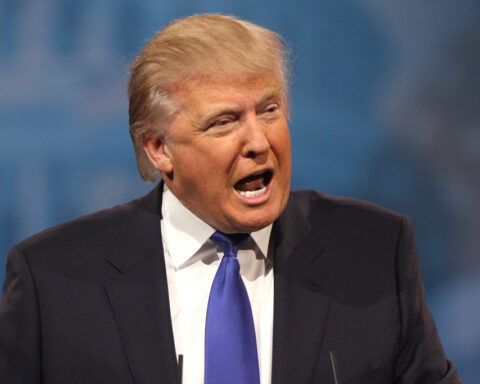The European Union on Friday reportedly unveiled a new package of sanctions aimed at Russia and its foreign backers, signaling that pressure from President Trump is beginning to nudge the bloc toward tougher measures.
The plan targets Chinese and other companies that continue to buy Russian oil in violation of Western price caps and marks one of the EU’s strongest steps yet to limit Moscow’s war financing.
The package, however, falls short of the sweeping action Mr. Trump has called for. The president has urged tariffs of up to 100 percent on China for what he views as Beijing’s active support of Russia’s war effort.
While European officials remain wary of tariffs, they have begun to adopt a more aggressive approach that critics long said was missing.
“Trump’s pressure on Europe to move faster on banning Russian energy imports seems to have worked,” said Simone Tagliapietra, a senior fellow at Bruegel, a Brussels-based think tank.
The measures—still requiring the backing of all 27 member states—would expand banking sanctions, blacklist another 118 vessels suspected of transporting Russian oil, and block transactions by Russian oil giants Rosneft and Gazpromneft.
In a sharp escalation, the EU would also penalize oil traders, refineries, and petrochemical companies in countries such as China that purchase crude above the bloc’s $47.60-per-barrel price cap.
European Commission President Ursula von der Leyen framed the move as a signal of determination. “We will go after oil traders, petrochemical companies and refineries in third countries, including China, that buy oil in breach of the price cap,” she said.
The sanctions extend to liquefied natural gas, with the EU pledging to end Russian LNG purchases by late 2026—a year earlier than planned.
While the bloc still imported close to $27 billion in Russian energy last year, that figure has plunged from about $169 billion in 2022. Russia’s share of EU gas imports has fallen to 14 percent this year, with the United States now supplying a dominant 57 percent.
The Kremlin dismissed the measures as hostile acts that would not alter its conduct in Ukraine. “Any new EU sanctions would be seen as hostile acts and wouldn’t prompt Moscow to change its position,” said Dmitry Peskov, spokesman for President Vladimir V. Putin.
In Washington, the announcement drew praise from Republicans who have long urged Europe to shoulder more responsibility. Senator Lindsey Graham of South Carolina, a close Trump ally, said the EU’s willingness to sanction oil infrastructure tied to China was “a significant step in the right direction.” He added: “If China chose to call Putin tomorrow and said it’s time to end the war, it would end.”
The move underscores a shift that conservatives in the U.S. have pressed for: Europe adopting sanctions with teeth, not merely symbolic gestures.
Russia’s economy, buoyed by oil revenues and military spending, grew around 4 percent in 2023 and 2024. But analysts expect growth to slow to about 1 percent this year, squeezed by inflation, interest rates, and now a tougher Western sanctions regime.
Europe may still resist Mr. Trump’s full-throated calls for tariffs and maximum pressure, but the trajectory is clear. After years of hesitation, the EU appears to be edging closer to Washington’s view that the only way to curb Moscow—and its enablers in Beijing—is through economic force.
[READ MORE: Trump Turns the Tables on Europe Over Russia Sanctions]






